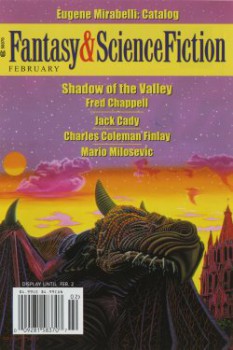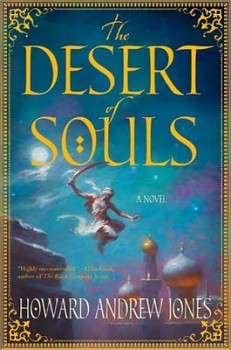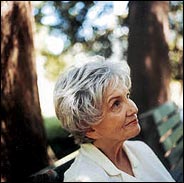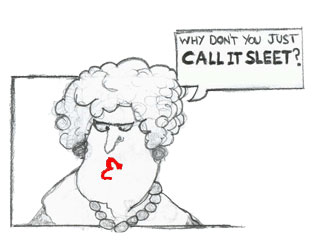EXPERTISE: The Role of the Expert in Fantastic Fiction
 As I began the second story in the latest issue of Black Gate, I was forcefully (but not forcibly) reminded of a review I wrote some years ago for Tangent Online. The review covered a 2009 edition of Fantasy & Science Fiction, the salient section being a paragraph I’d penned in response to Fred Chappell’s “Shadow of the Valley”:
As I began the second story in the latest issue of Black Gate, I was forcefully (but not forcibly) reminded of a review I wrote some years ago for Tangent Online. The review covered a 2009 edition of Fantasy & Science Fiction, the salient section being a paragraph I’d penned in response to Fred Chappell’s “Shadow of the Valley”:
As with heist movies and Tom Clancy thrillers, “Shadow of the Valley” thrives on the appeal of the expert, in this case Falco. He’s a man’s man, the icon of so many Westerns, the sort who can accurately predict the motives and movements of others, then exploit them to a tee. He has no emotional connections of any kind (indeed, women and children are notably absent from the story), and would likely deny needing any such thing. For experts, need is weakness. Think of Moorcock’s Von Bek, Fleming’s 007. We love these all-knowing cynics at least in part because they are so patently broken. Like them, Falco is the sort of tough-guy to whom readers cotton easily; his smarts and his world-weariness are butter for the bread of our reading experience. And so the story’s success stands or falls on Falco’s confident, wary shoulders; we follow the turns of this short story-cum-novelette to the degree that we bet for or against Falco’s success. Will he and his outlaw band reach the prized plants before Mutano, and will he get them back to semi-safe civilization before misfortune overtakes him? The pages turn readily in search of the answers.
Not that I recalled any of that write-up with real clarity, but the general notion of the gifted expert –– one who excels in at least one arena, to a degree far beyond the scope of “normal” folk –– sounded loud and clear. The reason? The first two offerings in Black Gate 15 feature experts, first with the thoughtful, anonymous (?) archivist in John C. Hocking’s “A River Through Darkness and Light” and then with Kyth, Jonathan L. Howard’s genial, engaging “taker,” in “The Shuttered Temple.”
Both Kyth and the archivist are tough customers, but they live less by muscle than wit. What keeps them alive is training –– training in tandem with a raft of (hopefully) applicable prior experience. To be sure, neither the archivist nor Kyth fits the super-cynical Chandleresque model I have described above in reference to Chappell’s Falco, but both heroes do exhibit many of Falco’s traits: they proceed with few or no strings attached, they bring with them a body of unparalleled knowledge, and while they do not mind the occasional compatriot, they work well alone and trust themselves above all others.
 The experts contained in Black Gate 15 are manifold. Grady, the seasoned, concerned sea captain of “Dellith’s Child,” is unquestionably grounded in the camp of the expert (although in his case, self-confidence if not outright hubris dooms him in the end), while Oler, a sea captain only by necessity, brings an arsenal of magic and forethought to a hell-gate battle in “Roundelay.” The issue closes with an excerpt from The Desert of Souls, in which the redoubtable (and increasingly well known) team of Dabir and Asim draw on martial prowess and ancient wisdom to defeat a vengeful sorcerer and save the entire 8th Century Caliphate.
The experts contained in Black Gate 15 are manifold. Grady, the seasoned, concerned sea captain of “Dellith’s Child,” is unquestionably grounded in the camp of the expert (although in his case, self-confidence if not outright hubris dooms him in the end), while Oler, a sea captain only by necessity, brings an arsenal of magic and forethought to a hell-gate battle in “Roundelay.” The issue closes with an excerpt from The Desert of Souls, in which the redoubtable (and increasingly well known) team of Dabir and Asim draw on martial prowess and ancient wisdom to defeat a vengeful sorcerer and save the entire 8th Century Caliphate.
Here’s the rub: the crises that require these active experts (protagonists who really protag) are almost without exception situational crises. That is, the crisis comes from without: a kingdom is invaded, a demon takes over a sibling, a god requires rescue from a spellbound tower. These basic tropes of fantastic fiction don’t absolutely demand the intervention of an expert, but the likelihood of any given author providing that very solution is high.
(Another solution is, of course, the advent of the neophyte: Frodo (or Bilbo) in The Lord of the Rings, Harry Potter in any given J.K. Rowling outing, Luke Skywalker in Star Wars. Or, to return to the Black Gate examples, Nysa in “Cursing the Weather,” who learns to see through paranoia, chicanery and greed via a benevolent mentor, Jiro the weather “wizard.”)
Why do writers gravitate with such frequency to experts? Well, in many cases, they don’t. It’s writers of genre fiction (and genre film and television) who migrate back again and again to experts. Why? Supply and demand. Consumers –– that is, readers and viewers –– us –– dearly love experts. And why not? Who doesn’t enjoy the craft and ruthless efficiency of Sherlock Holmes, or the total inefficiency of equally determined experts ranging from Harry Dresden to Merlyn to Easy Rawlins? What could be more fun than watching the A-Team build another assault vehicle, or cheering on MacGyver as he escapes from an airless bank vault using nothing but two dust bunnies, a AA battery, and a desperately stained bath mat?
 Well, there are readers (and viewers) who prefer literary fictions. Consider “Home,” a recent New Yorker story (June 13-20, 2011), from the bilious but sharply funny pen of George Saunders. Mikey, the “hero,” returns from a tour of duty in Iraq, still dealing with having been court-martialed, and discovers that his useless, hapless mother is being evicted. Mikey has a lot of rage but not much else that he can bring to bear. In the course of the story’s eight pages, he considers strangling his mother, beating up the sheriff, and possibly assaulting his sister’s infant child. In the end, he manages little more than a voiceless plea to “bring me back. Find some way to bring me back…”
Well, there are readers (and viewers) who prefer literary fictions. Consider “Home,” a recent New Yorker story (June 13-20, 2011), from the bilious but sharply funny pen of George Saunders. Mikey, the “hero,” returns from a tour of duty in Iraq, still dealing with having been court-martialed, and discovers that his useless, hapless mother is being evicted. Mikey has a lot of rage but not much else that he can bring to bear. In the course of the story’s eight pages, he considers strangling his mother, beating up the sheriff, and possibly assaulting his sister’s infant child. In the end, he manages little more than a voiceless plea to “bring me back. Find some way to bring me back…”
Even though the protagonist (Mikey) could not have protagged his way out of a wet paper bag, and even though the piece has no particular forward motion, no rising stakes, no accretion of desperate circumstances, the story leaps off the page –– and this despite the fact that much of the relevant action happens before the story even begins.

Canadian master Alice Munro evinces a similar tendency toward upending structural conventions. In “Silence,” another New Yorker entry (later reprinted in Best American Short Stories 2005), middle-aged mother Juliette discovers at the story’s outset that her grown daughter has opted to disappear, to intentionally cut off all contact. Juliette may not be warm and fuzzy, but she isn’t the Wicked Witch of the West, either, and the mystery of why her daughter chose to vanish herself is the nominal business of “Silence.” The hunt, however, is window dressing, for Munro has other fish to fry. Juliette’s attempts to locate her daughter end in futility. There is no closure. There is no denouement. What remains instead is the disquieting sensation that something has gone horribly wrong with the order of the universe, and that similar disasters could happen to anyone, without warning, any time.
(A quick aside: any fantasy fans inclined to bash the venerable Best American Short Stories series should cut the editors some slack. That same 2005 edition also contained Tim Pratt’s foul-mouthed Western, “Hart and Boot,” Kelly Link’s slippery bunny-fantasia “Stone Animals,” and Cory Doctorow’s outstanding World of Warcraft send-up, “Anda’s Game.”)
So: what matters in the fictional canvasses of writers like Munro and Saunders is the main characters’ internal responses, their personal conflicts. Unlike most genre fiction, which typically rests on situational crises, literary writing hangs its hat on the personal, on the advent of psychological trauma. Solutions are not expected and are often beside the point (although epiphanies do occur). Rather than honing in on triumph in the face of adversity, Saunders and company are more likely to illuminate a particular point in time with a laser-like attention to specific detail; the broader action of a pending invasion, as in another recent Black Gate offering, “The Lions of Karthagar,” holds no interest for them.
If one did introduce an expert into Mikey’s world, the result would be a sort of doubled frustration, for not only could the expert not succeed in these authors’ moral quicksands, but readers would be left feeling cheated. The predictable and promised heroism of the qualified expert would sink beneath a murky, ever-yielding sea in which such firm characters cannot possibly swim. Most likely, a typical reader would set such a book not just down but well out of the way.
True, Munro’s Juliette and Saunders’ Mikey are experts, after a fashion. She’s a talk show host, the sort of serious TV interviewer that the current airwaves have largely erased, and he’s an armed forces warrior. Unfortunately, their expertise is useless, impotent in the face of the particular situations they face. They are experts, yes, but of the wrong kind; their timing and talent are hopelessly off.
Experts, then, require something relatively straightforward to fight against. They may succeed or fail, and their opposition well be both vast and terrible, but the enemy must be readily defined. (In fact, this sort of clarity is typical of most genre fiction, even with nary an expert in sight.) The Empire may be sprawling and deadly, but for Luke and Han and Leia, it’s easily identified, while Kyth the Taker has only one real problem: how to get in and out of the Shuttered Temple without getting killed.
To be sure, even if the larger framework is straightforward, experts still demand careful handling. First and foremost, they must impress. If their expertise flags –– if the reader can with some regularity outthink the hero, or bring a greater body of knowledge to bear than the supposed expert –– then the fictional illusion will fail, and again, the story will be set aside.
Writers do, fortunately, have one advantage: the time to perform research. I clearly remember Howard Andrew Jones lamenting one night about how long it took him to write his way out of the predicaments into which he threw Dabir and Asim, and how they essentially made him feel foolish and inept by making things, on the finished page, seem simple. Dabir and Asim do indeed find admirable solutions in the blink of an eye, as needed, but authorial sleight of hand of course wins the day. What Jones can’t muster quickly, he can work out in good time, through ideation and careful revision. What matters in the end is not how fast Jones came up with the solution, but the effectiveness, in the hands of Asim and Dabir, of the solution’s deployment.
Essentially, a fictional character may well be considerably more intelligent than the writer who created her, and to achieve this is one of the great achievements of any craft-conscious writer.
(Given research and time, any writer worth his salt can write his way out of a situational jam, but can that same writer manage the even more difficult trick of creating a genuine, believable human character that goes beyond that author’s particular personal limitations? I believe it was Vanessa Redgrave who once opined that no actor could play a character more generous than herself, and a similar logic follows here. We cannot be (or authentically conjure) that which we are not. We try, of course. All artists do. Do we ever truly succeed?)
 My own novel cycle, The Portal, now being shopped by my agent (thank you, agent!), relies on the hero-as-expert only insofar as the de facto expert, Tetch, is forcibly (and forcefully) removed from the story at about the one-third point. After that, it’s up to his apprentice, the teen-age herbalist, Rayna, to step up to the plate. Like Bella in Twilight, Rayna feels unworthy and unready, but unlike Twilight’s hand-wringing ingenue, Rayna steels herself to the situation and resolves to get her mentor back, whatever the cost. That the fate of the wider world might also hang in the balance does not occur to her until much later, a small feat of subterfuge that I hope works in The Portal’s favor, since my goal is to give Rayna direct, personal stakes, and to let the broader context sink in only by degrees. Even then, she keeps at her task for her own semi-selfish ends, not for the sake of humanity in general. I’m not interested in making Rayna a saint, and besides, let’s face it: aren’t we all a little tired of teenagers saving the world? Frankly, the whole idea plays to teens’ delusional sense of godhood and is, perhaps, a balloon best popped as loudly and quickly as possible. But that’s a tale for another time…
My own novel cycle, The Portal, now being shopped by my agent (thank you, agent!), relies on the hero-as-expert only insofar as the de facto expert, Tetch, is forcibly (and forcefully) removed from the story at about the one-third point. After that, it’s up to his apprentice, the teen-age herbalist, Rayna, to step up to the plate. Like Bella in Twilight, Rayna feels unworthy and unready, but unlike Twilight’s hand-wringing ingenue, Rayna steels herself to the situation and resolves to get her mentor back, whatever the cost. That the fate of the wider world might also hang in the balance does not occur to her until much later, a small feat of subterfuge that I hope works in The Portal’s favor, since my goal is to give Rayna direct, personal stakes, and to let the broader context sink in only by degrees. Even then, she keeps at her task for her own semi-selfish ends, not for the sake of humanity in general. I’m not interested in making Rayna a saint, and besides, let’s face it: aren’t we all a little tired of teenagers saving the world? Frankly, the whole idea plays to teens’ delusional sense of godhood and is, perhaps, a balloon best popped as loudly and quickly as possible. But that’s a tale for another time…
Certainly, the realm of the expert is ripe for bending and warping, and of course a smorgasbord of near infinite possibilities are available to a writer even when the basic conceit of any given story is not expert-driven. In The Portal’s case, I’m employing the tried-and-true rubric of the coming-of-age story, but with the overlay of the novice, Rayna, needing to quickly fill an expert’s shoes. (Tetch, even in his absence, gives the novel what I hope might be a rich sense of ivory-tower quirk and philosophical weight; the world of The Portal, without him, would be much narrower in scope.)
“The Trade,” a prequel and perhaps parallel story to The Portal, is upcoming in Black Gate, and it follows a man with a very particular form of expertise, that of appraisal. His name is Gemen, and folk far and wide refer to him as Gemen the Antiques Dealer. Gemen is not, of course, much interested in antiques, but it suits his purposes well to be known for such things. His true skill lies with –– well, perhaps I’d best leave that as a surprise for the future.

Additional examples abound. In The Dresden Files (or at least the one I read, Fool Moon), Harry Dresden is a seriously accomplished wizard but he has huge gaps in his knowledge, so he relies on a helpful chatterbox of a talking skull to collect useful tidbits from, well, hell. Patrick Rothfuss’ student-hero, Kvothe, seeks a particular kind of highly elusive expertise, the ability to name and call the wind. Kvothe’s not an expert yet but the reader knows that mastery is just around the corner, since The Name of the Wind unfolds in flashback form. Kvothe’s eventual success is not merely portended, it is guaranteed.
Other methods of subverting standard approaches to expertise abound. In my short story “The Heisenberg Principle,” reprinted in the summer issue of Sleet, I take a great deal of creative license with one of the last century’s most creative thinkers, Werner Heisenberg. By allowing this expert scientist to try his hand at “another’s paint-pot,” he develops, by degrees ––and by becoming (of all things) a short story writer –– his famous Uncertainty Principle. In The Mote in God’s Eye (Pournelle and Niven) it’s a particular caste of “moties,” and not the human heroes at all, who are the true experts, engineers of astonishing, intuitive genius. Very handy to have around, too –– until, of course, with a nod to Mary Shelley and Dr. Frankenstein, they go berserk. In Hyperion, Dan Simmons stirs together a motley crew of disparate experts who, over the course of a Chaucerian narrative, reveal that they hardly know what to do with their accumulated smarts and know-how because the twin perils that confront them, the deadly Shrike and the inscrutable Time Temple, defy all their previous experience.

And that, of course, brings us full circle, back to Hocking’s archivist wrestling with lost languages, his life on the line, and Howard’s Kyth struggling to decipher a temple all but devoid of clues, certain that if she fails, the temple will be her death.
If these two were stuck in a Paiso campaign, we’d be talking DC fifty. At least.
High and specific stakes, low odds of survival, and a hero, with brains to spare, on the job. We demand this, do we not? If an expert is put into play, what else will suffice to hold a veteran fantasy reader’s interest? I mean, for goodness sakes, if the odds weren’t insurmountable, we wouldn’t bother, would be? Because when it comes to what we love to read (or write), it’s we who are the experts, we who set the terms, and the chances of even the slyest writer holding our jaded, world-weary attention are very long indeed.
So there we are.
‘Til next time.
Dream hard.
Write harder.
*
Mark Rigney is the author of Deaf Side Story: Deaf Sharks, Hearing Jets, and a Classic American Musical (Gallaudet University Press), as well as the play Acts Of God (Playscripts, Inc.). His most recent stories appear in Realms Of Fantasy (Feb. 2011), Day Terrors, and Altered States. His website is www.markrigney.net.
I really enjoyed this post, it gave me a lot to think about. The “expert” that immediately came to mind is Indiana Jones. That charcter would seem to fit your parameters to a tee.
[…] Mark Rigney looks at the rôle of the expert in fantasy on the Black Gate website. […]
I liked it as well. Most of the experts in the fiction I read, whether it’s fantasy, espionage, or crime fiction, have plenty of internal conflicts and psychological trauma. Perhaps these are professionals instead of experts? By that I mean a bit more realistic than 007 or Indiana Jones. Professionals appeal because we can imagine ourselves more readily as one. Perhaps we are a professional in real life, just not a detective, or a soldier. Professionals can work together to fill in gaps in their expertise when needed. Maybe the external conflicts found so often in fantasy fiction are actually the internal conflict or desires (armed conflict and blood, lust, etc) expressed as mighty armies, dragons, and beautiful damsels in distress? And maybe some experts aren’t really experts at all, but something different. Clint Eastwood’s character in Unforgiven appears as a gunslinger expert at first. By the end of the movie, the designation of expert no longer applies. He has become something far different, foolishly awakened by the bad guys. Near the end, the crooked sherif says, just before Eastwood’s character finishes him off, something like: “I don’t deserve this!” Eastwood’s character replies “Deserved ain’t got nothing to do with it” and pulls the trigger. This is not an expert, but a gunslinging god of destruction. (sort of like High Plains Drifter). So many grey areas with experts, I think. As for characters that become more than the author, why not? Many real life experts, from BB King to martial artists, firmly believe that they are an antenna or a channel for something that transcends them. Even if the author is only expanding her or his own unknown (to the author) potential a bit through a character, or if something somehow transcendent happens, why limit oneself to one’s own view of one’s limits?